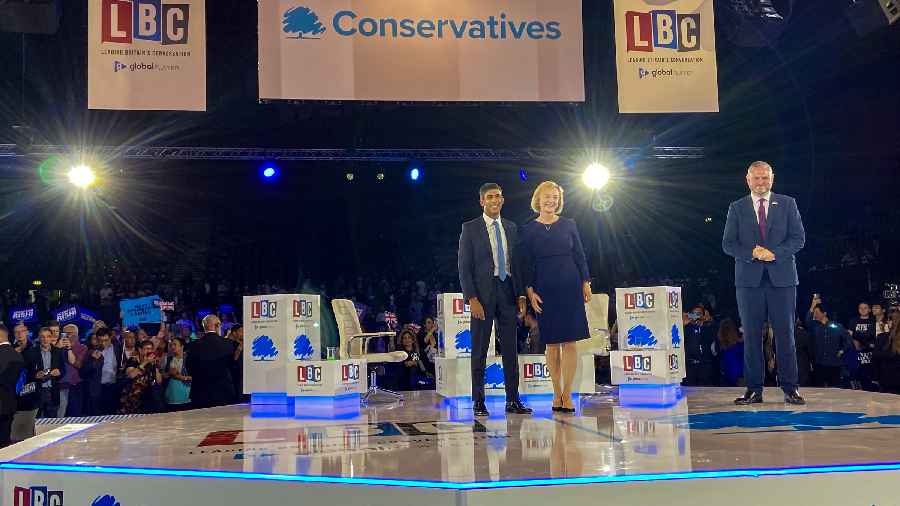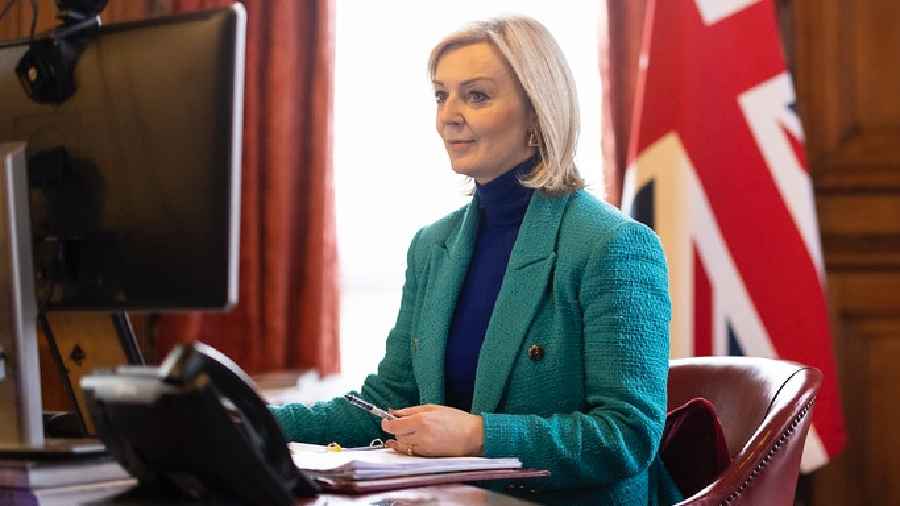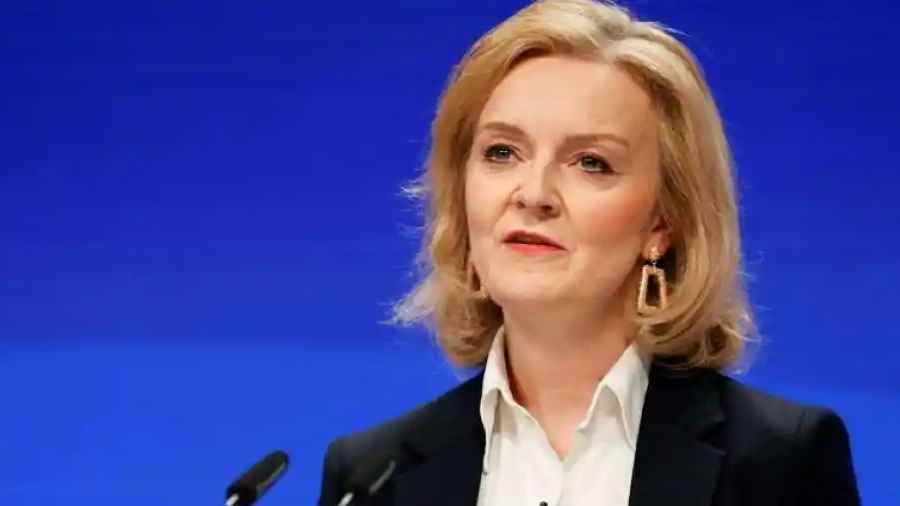Liz Truss, Britain’s foreign secretary, has won the race to be Conservative leader and Britain’s next Prime Minister, despite a gaffe-strewn six-week campaign. She won against the ex-chancellor of the exchequer, Rishi Sunak, by a margin of 57.4 per cent to 42.6 per cent, not as large as some pollsters had forecast.
During her victory speech, the 47-year-old diplomatic hawk and low-tax champion, who is Britain’s fourth Prime Minister in six years, declared: “I will deliver a bold plan to cut taxes and grow our economy.”
In response, sterling was trading against the dollar at its lowest level in 1985 and one asset manager grimly predicted the UK might be forced, in the not-too-distant future, to apply for an IMF loan to surmount the economic crisis embroiling the country.
Truss is entering office facing a greater swathe of problems than any British prime minister has had to tackle since World War II. At home, there is inflation expected to top 20 per cent by early next year, a recession around the corner and domestic energy costs that have skyrocketed by 80 per cent. There is the war in Ukraine that’s still raging. Then, there’s the economic aftermath of Covid-19 during which the government spent heavily to ensure that small businesses stayed afloat. Besides that, Britain is still battling the European Union (EU) in the wake of Brexit.
Truss a believer in low taxes
Defying economists who say her plans can only plunge the UK economy deeper into debt and create more problems, Truss has promised to slash income tax and also indirect value-added tax (like our GST). She insists these stimulus moves would revive the economy. Besides that, she’s also reported to be considering a freeze on energy prices but has rejected the idea of imposing a windfall tax on the surging profits of energy companies which would be one way to pay for them, saying she believes “in low taxes.”
Critics have savaged her plans and accused her of spinning dangerous economic fantasies. While saying she will cut taxes she has also promised to hike defence spending and subsidies to help the public overcome post-pandemic difficulties. Truss added during her victory speech: “I will deliver on the energy crisis, dealing with people’s energy bills, but also dealing with the long-term issues we have on energy supply.”
Truss’s closest lieutenant Kwasi Kwarteng, who’s considered a shoo-in to be the chancellor of the exchequer in her government, wrote in the Financial Times Monday that, “though there will need to be some financial loosening”, the new administration will act in “a fiscally responsible way”. His article was rubbished by The Guardian’s Economics Editor Richard Partington, who declared that, “the Kwarteng op-ed is wild”.
Iron lady outfits
Controversially, she has also said she will cut taxes on the rich. ITV’s Political Editor, Robert Peston said: “If she follows through with her tax-cutting plans, Liz Truss represents perhaps the most important shift in UK economic policy since (former prime minister Margaret) Thatcher.” Truss borrows from Thatcher’s style, wearing outfits resembling those worn by the “Iron Lady,” as the late Conservative leader was known.
Truss formally takes on the job of Prime Minister after a meeting with Queen Elizabeth II at Balmoral Castle in Scotland, taking over from Boris Johnson whose scandal-strewn three-year tenure finally ended in his ouster by the party.
The two candidates held hundreds of meetings with Conservative Party members throughout the length and breadth of Britain. In her election speech, Truss called the campaign, “the longest job interview in history”. The campaign included several TV debates, and ended with a giant event at Wembley Arena, attended by 6,000 people.
Wrong choice: 87%
Sunak, who won in the first round of the campaign, was widely favoured by Conservative Party MPs and there is massive scepticism about Truss among the public. The Times, London, a Conservative-leaning newspaper, in a flash readers’ poll on Monday, found that 87 per cent of respondents believed that the party rank-and-file had made the wrong choice between Sunak and Rishi.
However, when the MPs’ final choice went to the 172,000 Conservative Party members around the country it was clear that Truss was widely preferred by them. This, according to the opinion polls, was particularly true when it came to older voters who make up the vast majority of the rank-and-file who made the ultimate decision on who would succeed Johnson. The vast wealth of the Sunaks’ – his wife is richer than Queen Elizabeth – also played against him with critics portraying him as out of touch. In the end, Truss received 81,000 votes compared to Sunak’s 60,000.
Truss is close to assembling her top team who will serve in the cabinet in which British newspapers reported that none of the great offices of state will be held by a white person. There is expected to be Kwarteng, who’s of Ghanaian origin, as chancellor, and James Cleverly whose mother is from Sierra Leone as foreign secretary. Immigration hardliner Suella Braverman whose mother was born in Mauritius and her father came to Britain from Kenya is tipped as home minister.

Rishi Sunak and Liz Truss at the final hustings event for the UK Prime Ministerial race, in London PTI picture
Sunak a backbencher
Sunak has ruled out being in Truss’s cabinet and like Johnson will be on the backbenches. Some media reports have speculated that the former banker will quit politics and head back to California to resume a financial career.
Neither candidate had the charisma of Johnson. But certainly, there were elements of racism playing against the Indian-origin Sunak but his clear fiscal responsibility message there would have to be belt-tightening and cutbacks was not a popular one with voters. Sunak was also looked upon unfavourably by the Conservative rank-and-file because he was seen as having triggered Johnson’s downfall by resigning as chancellor. Truss, by contrast, repeatedly declared how loyal she had been to Johnson and complimented his achievements in her acceptance speech.
Truss also faces a deeply divided party that is stuck between “seller’s remorse” at having ejected Johnson and yearning for a fresh beginning. Besides the raft of economic problems, Truss could also face a challenger down the road from Johnson, who’s indicated he would very much like to return to No 10 Downing Street.
Truss, who is the third woman Prime Minister after Thatcher and Theresa May, has always been quick to backtrack on promises. Even though she said, “I campaigned as a Conservative, and I will govern as a Conservative,” there are predictions that she may step away from many of her wilder pledges made during the campaign.












